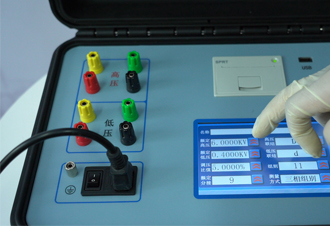 English
English


Analysis of Engine Oil Samples for Performance and Quality Assessment
Engine Oil Sample Testing Ensuring Optimal Performance and Longevity
In the realm of automotive maintenance, engine oil plays a pivotal role in ensuring that vehicles operate smoothly and efficiently. Regular engine oil sample testing has emerged as a critical practice for automotive professionals and car enthusiasts alike, as it provides a comprehensive insight into the condition of the engine and the oil itself. This article delves into the importance of engine oil sample testing, the methodologies involved, and the benefits it brings to vehicle performance and longevity.
Understanding Engine Oil and Its Importance
Engine oil is the lifeblood of any vehicle, serving multiple essential functions lubricating engine components, reducing friction, dissipating heat, and preventing the formation of sludge and wear. Over time, however, engine oil can degrade due to exposure to heat, contaminants, and the byproducts of combustion. If not monitored and replaced regularly, degraded oil can lead to engine wear and potential failure, which makes regular testing integral to vehicle maintenance.
What is Engine Oil Sample Testing?
Engine oil sample testing refers to the process of analyzing samples of used engine oil to assess its condition and the overall health of the engine. This testing typically involves collecting a small amount of oil from the engine, usually during an oil change or scheduled maintenance, and sending it to a laboratory for analysis. Various parameters are examined, including viscosity, contamination levels, additives, and the presence of wear metals.
Methodologies Involved in Testing
The testing process employs various analytical techniques to extract valuable data from the oil sample
. Some common tests include1. Viscosity Analysis Viscosity is a measure of an oil's thickness and its ability to flow. Changes in viscosity can indicate contamination or degradation, which can affect the oil’s lubricating properties.
2. Spectrometric Analysis This technique provides information on the concentration of wear metals and contaminants present in the oil. Elevated levels of specific metals can indicate wear in various engine components.
engine oil sample testing

3. Fourier Transform Infrared (FTIR) Spectroscopy FTIR is used to identify the chemical composition of the oil and detect oxidation levels, which can provide insights into the oil's degradation process.
4. Total Acid Number (TAN) The TAN measures the acidity of the oil, which can indicate the level of contaminants and the oil’s ability to neutralize acids formed during combustion.
5. Water Content Analysis Water in engine oil can lead to emulsification and corrosion, so measuring water content is critical for assessing oil health.
Benefits of Engine Oil Sample Testing
The benefits of regular engine oil sample testing are manifold
1. Early Detection of Issues Regular testing allows for early identification of potential problems within the engine, which can be addressed before they escalate into costly repairs.
2. Optimized Maintenance Schedules By accurately assessing the condition of the oil and the engine, mechanics can determine the optimal time for oil changes, avoiding unnecessary replacements and extending the intervals between changes.
3. Cost Savings Preventative measures derived from testing can lead to significant savings in repairs and maintenance, ultimately enhancing the overall lifespan of the engine.
4. Performance Maximization Vehicles run more efficiently and reliably when the engine oil is in top condition. Testing ensures that the oil's properties are suitable for the engine’s requirements, optimizing performance.
In conclusion, engine oil sample testing is an essential practice for maintaining vehicle health and performance. By investing in regular analysis, car owners and fleet managers can extend the life of their engines, prevent costly breakdowns, and ensure that their vehicles operate at peak efficiency. Through the insights gained from oil sample testing, maintaining an optimal lubrication regime becomes not just a recommendation, but a standardized practice in vehicle care.
-
Differences between open cup flash point tester and closed cup flash point testerNewsOct.31,2024
-
The Reliable Load Tap ChangerNewsOct.23,2024
-
The Essential Guide to Hipot TestersNewsOct.23,2024
-
The Digital Insulation TesterNewsOct.23,2024
-
The Best Earth Loop Impedance Tester for SaleNewsOct.23,2024
-
Tan Delta Tester--The Essential Tool for Electrical Insulation TestingNewsOct.23,2024





